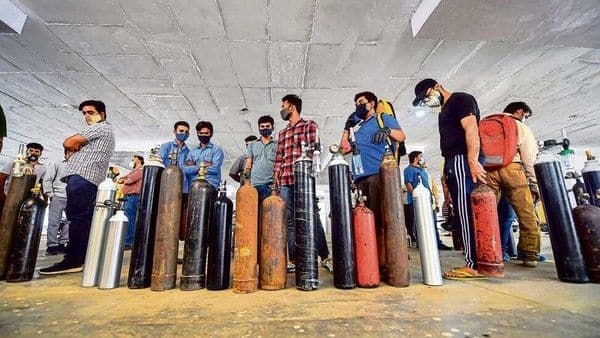 News
News
10 unanswered questions about India’s second Covid-19 wave

Summary
Mint looks at the questions the government has left unanswered.
Why were early warnings ignored?
The government was warned by scientific advisers as early as March about a more contagious variant of the virus, a Reuters report said on Monday. Rakesh Mishra, director of the Centre for Cellular and Molecular Biology, told The Wire on Tuesday health secretary Rajesh Bhushan was informed about it and it’s impossible to believe that the Prime Minister would not have been told. But, the Centre allowed the Kumbh Mela and conducted election rallies in West Bengal, Kerala, Tamil Nadu and Assam.
What is the impact of the new variants?
On 24 April, National Centre for Disease Control director Sujeet Kumar Singh said mutant variants were becoming dominant, with the UK variant (B.1.1.7) becoming the primary variant in Punjab, the Indian variant (B.1.617) becoming prominent in Maharashtra, and both the variants becoming dominant in Delhi. A new strain first discovered in Andhra Pradesh, may be even more virulent than two prominent variants discovered in India, B.1.617 and B.1.618 that was first discovered in West Bengal.
Are test kits able to detect these variants?
Indian government agencies have said the kits are able to detect the new variants but have not provided any data to substantiate their claims. They, as well as testing kit manufacturers, have said the mutations are happening in the spike protein gene of variants and as most RT-PCR kits do not use the spike protein gene, there is no cause for concern. The increasing number of false negative test results has been blamed on human errors by lab technicians who are overworked.
Will there be an audit of covid-19 deaths?
With the number of false negative results and delays in testing itself increasing, there are concerns that the number of covid-19 cases across the country might be undercounted despite being at a record high. This is also the situation with deaths, especially with the number of cremations in various parts of the country indicating massive underreporting of deaths due to the coronavirus disease. In such a scenario, an audit of the situation is needed, especially about deaths.
How is covid spreading in rural areas?
There has been less focus on areas other than metropolitan cities, especially rural India. Covid-19 has made inroads into rural regions, but the government has not provided updates on the spread of covid-19. Yogesh Jain, a founding member of Jan Swasthya Sahyog, said most tests conducted in rural regions are antigen tests and not the more accurate RT-PCR tests. A national seroprevalence survey in February had indicated that four out of five people in rural India were still vulnerable to the disease.
Should treatment protocols be updated?
The ICMR has not informed the public about the change in transmissibility and mortality caused by mutant variants. Less is known about whether this would entail a change of treatment. Instead, the Centre has mixed up its messaging. AIIMS director Randeep Guleria has asked people to not overuse oxygen and drugs such as remdesivir even as the government recommends use of hydroxychloroquine for mild covid-19 despite the WHO’s comments on its lack of benefits.
Are vaccines effective against new variants?
There are in-vitro studies by Bharat Biotech International that shows Covaxin is effective against the double mutant variant found in India and the UK variant. Anurag Agrawal, director of the Institute of Genomics and Integrative Biology, last month said similar studies with Covishield have shown positive results. But, it is not known how much the efficacy of these vaccines is reduced in the real world. Covishield has been shown to be only 10% efficacious against the South African variant.
How many deaths took place post vaccination?
The Centre has in over a month not provided details on the serious and severe adverse events following vaccination. Only 13 final reports on serious adverse events are publicly available even as independent experts have tracked over hundreds of such cases. These events are extremely rare, but the government’s clarity is needed, especially as vaccination has been opened for all adults and Covishield’s original version developed by AstraZeneca could be linked to rare cases of blood clots.
What are the issues with oxygen supply?
There is an acute shortage of oxygen in India. The Centre said this is primarily because of inadequate facilities to transport oxygen from surplus states to deficit states. The shortage continues despite using ‘Oxygen Express’ trains and Air Force planes to fly back empty trucks. There is also a massive difference between the Centre and states over demand. A court hearing on 29 April showed Delhi had sought 700 metric tonnes of oxygen but received only 480-490 tonnes.
What about vaccine procurement?
The government has adopted a piecemeal approach to buying vaccines, unlike countries such as the US and the UK, which have placed large advance orders with companies such as Pfizer, Moderna, and AstraZeneca. Many activists and journalists have regularly asked the Centre to reveal details of their deals, including pricing and quantities procured, but the Indian government has not been forthcoming with data on it, with a news report on Monday forcing it to reveal details to deny the report.


